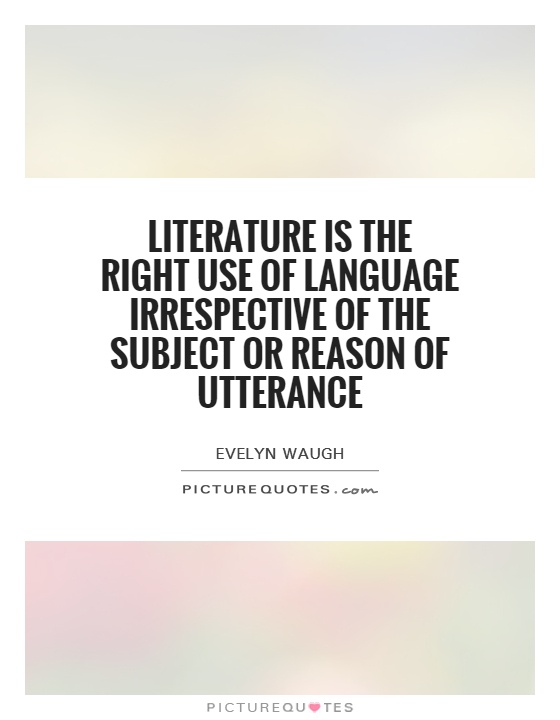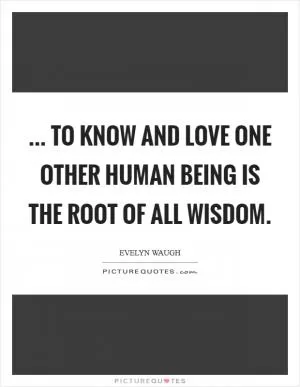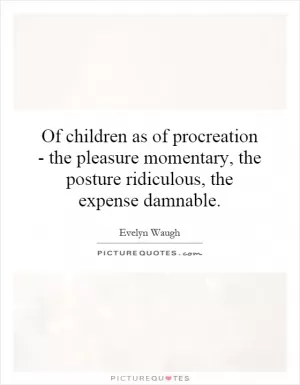Literature is the right use of language irrespective of the subject or reason of utterance

Literature is the right use of language irrespective of the subject or reason of utterance
Evelyn Waugh, a renowned English writer known for his satirical novels and sharp wit, exemplifies the idea that literature is the right use of language irrespective of the subject or reason of utterance. Throughout his career, Waugh demonstrated a mastery of language that transcended the boundaries of genre and subject matter, creating works that continue to resonate with readers today.Waugh's novels, such as "Brideshead Revisited" and "A Handful of Dust," are often praised for their elegant prose and incisive social commentary. His use of language is precise and evocative, drawing readers into the worlds he creates with vivid descriptions and clever dialogue. Whether he is writing about the decadence of the British aristocracy or the absurdities of modern life, Waugh's language is always carefully crafted to convey his message with clarity and impact.
One of the key aspects of Waugh's writing that exemplifies the idea that literature is the right use of language is his ability to capture the nuances of human emotion and experience. In his novels, Waugh explores themes of love, loss, and redemption with a sensitivity and depth that is both moving and thought-provoking. His characters are complex and multi-dimensional, their inner lives revealed through the subtle nuances of his language.
Waugh's use of language is also evident in his non-fiction writing, such as his travelogues and essays. In these works, he demonstrates a keen eye for detail and a gift for storytelling that is both engaging and informative. Whether he is describing the beauty of a foreign landscape or critiquing the politics of the day, Waugh's language is always precise and compelling.
Overall, Evelyn Waugh's work serves as a testament to the idea that literature is the right use of language irrespective of the subject or reason of utterance. Through his novels, essays, and other writings, Waugh demonstrates the power of language to illuminate the human experience and provoke thought and reflection. His legacy as a writer continues to inspire and influence readers and writers alike, reminding us of the enduring importance of language in shaping our understanding of the world.












 Friendship Quotes
Friendship Quotes Love Quotes
Love Quotes Life Quotes
Life Quotes Funny Quotes
Funny Quotes Motivational Quotes
Motivational Quotes Inspirational Quotes
Inspirational Quotes